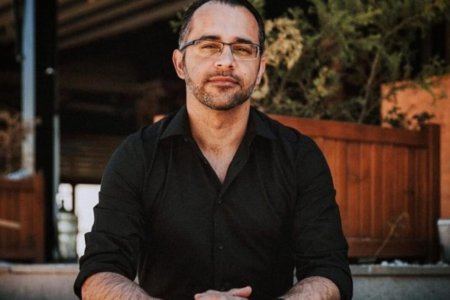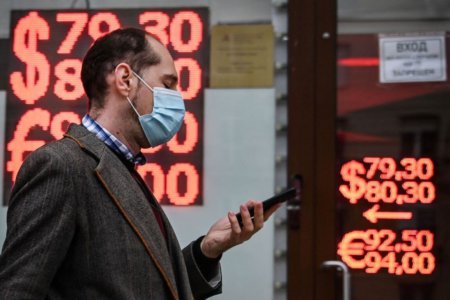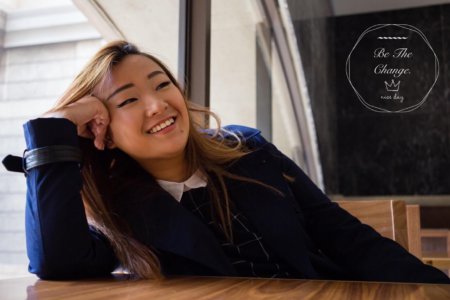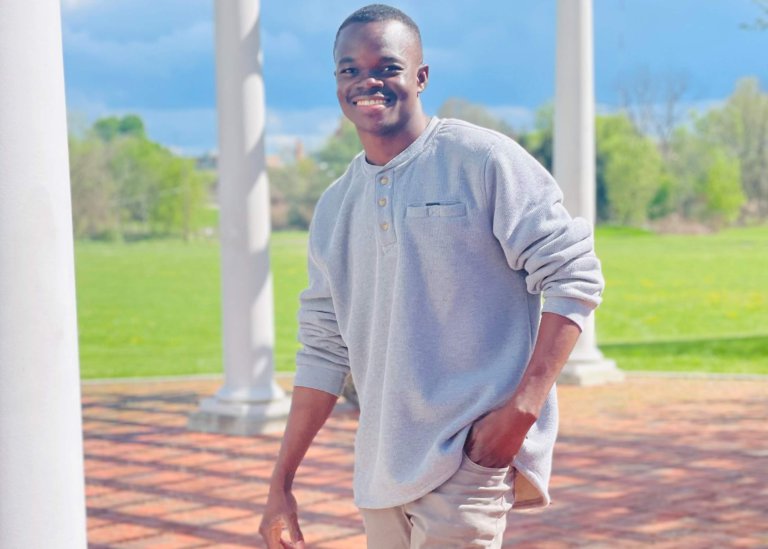
If the Nobel Peace Prize is the most prestigious award for “the best work for fraternity between nations, for the abolition or reduction of standing armies and for the holding and promotion of peace congresses,” then the Hult Prize is the college student prize equivalent.
Student social entrepreneurs vie for the US$1 million prize by coming up with the best plan for addressing global problems. It can be a “Doc-in-a-Box” to provide healthcare for over 250 million slum-dwellers or turning insects into food to cut nutritional deficiencies — both of which were past winners.
This year, Benedict Kuunaa-eguo Kongyir from Ghana, along with two others from Youngstown State University, is heading to the Hult regional finals in Boston. Their idea? “Food for Good” — a business proposal that helps impoverished communities in rural Africa to farm during the dry season. They partnered with a local organisation to create an irrigation system to transport water, which is where Kongyir (who used to be a farmer back in Ghana) comes in.
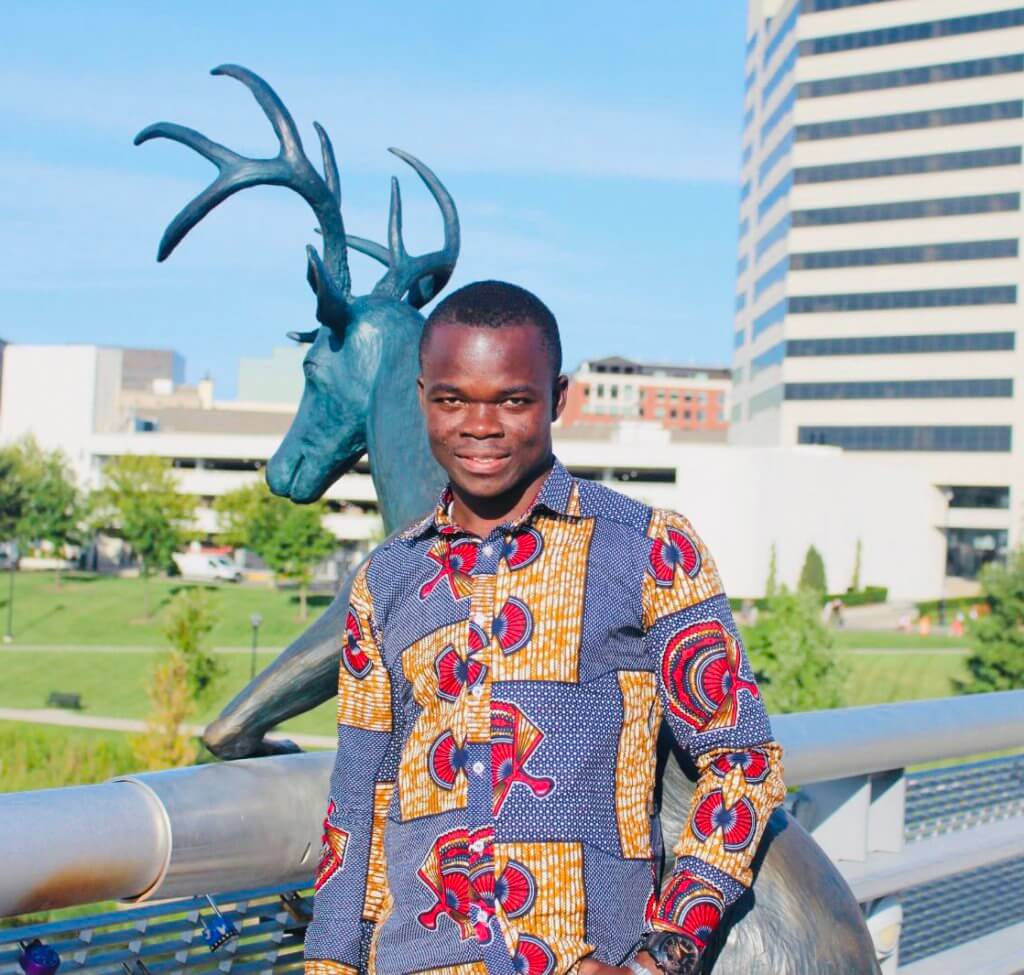
“I grew up in a village and attended one of the poorest basic schools in the Lawra District of Ghana. So, my oral English was horrible until after high school,” Kongyir says. Source: Benedict Kuunaa-eguo Kongyir
His experience makes him a key member of the team. At the same time, he’s juggling his mathematics degree and ambitions to become an actuary or a professor in the US. We caught up with Kongyir to learn more about his passion for maths, his farming background and how he plans to win the famed student prize:
Is there a personal backstory behind your interest in mathematics?
I grew up in a village and attended one of the poorest basic schools in the Lawra District of Ghana. So, my oral English was horrible until after high school at St. Francis Xavier Minor Seminary.
Because of this, reading courses was a challenge for me and I performed badly. I was good at mathematics because it required little or no complicated English. To make up for the reading courses I decided to maximise my performance in mathematics and related courses.
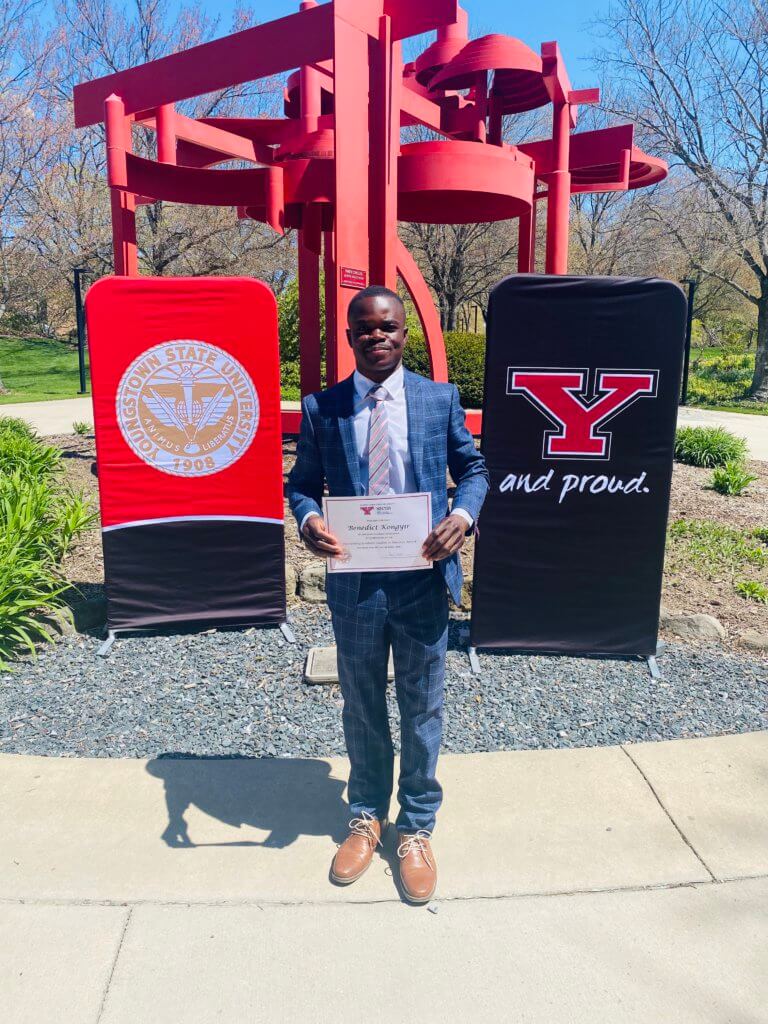
” I chose to pursue actuarial science for my undergraduate studies since it’s mathematics related,” Kongyir says. Source: Benedict Kuunaa-eguo Kongyir
I also worked on improving my English by reading storybooks. I honestly wanted to study a programme called Christian Religious Studies at high school but since it was all about reading, I boycotted the idea. I chose to pursue actuarial science for my undergraduate studies since it’s mathematics related.
Pursuing a BSc in Actuarial Science in Kwame Nkrumah University of Science and Technology was a pleasure. There was however one question of memorising when it does not make sense to me and how to apply concepts or theories to everyday life. This kept me anxious and up all night but I finally found myself at ease proving these theorems with my professors.
This love for mathematics and its applications was while studying and writing my final undergraduate project. Together with colleagues we wrote “A Model for Pricing Insurance Using Options” which is now published in the Journal of Research in Business Economics and Management.
What made you choose to study maths and statistics at Youngstown State University and the US?
The first reason was the programme outline. When I read the structure, I realised students have the option to specialise in either statistics, pure mathematics, applied mathematics or actuarial science. As an actuarial science graduate, I wanted to diversify my knowledge and remain in the profession.
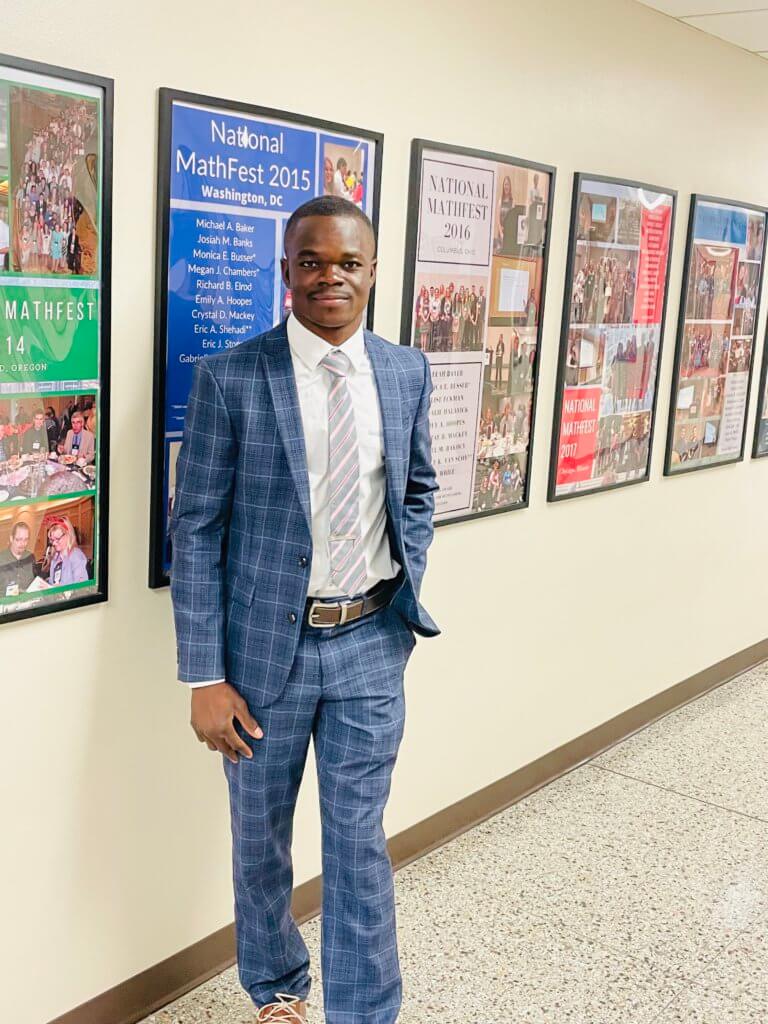
Kongyir aims to become a predictive actuary and an academic professor. Source: Benedict Kuunaa-eguo Kongyir
The programme is also very flexible in which students are allowed to pursue mathematics and specialise in other fields like statistics and actuarial science. I also know a number of other Ghanaians who study here.
What difference do you think it would have made if you studied at a local institution?
I was looking for a sponsorship for my studies which is rare to get at local institutions back home. I also wanted the foreign experience with my studies with no disrespect to local institutions.
They are good but I see something that I think I would have missed out on — hands-on practical experience with the courses, regular projects and research. Here in the US, all this is very intense and I enjoy working on projects.
What has been your most memorable class so far?
Real Analysis 2, a required course which I did not have the prerequisite to take and since it was my final year, I couldn’t defer it. This course is ridiculously challenging.
I remember sitting in my room with problems as I had no idea how to solve them. Coming from an actuarial science background, I did not have enough pure mathematics knowledge and tools to do rigorous proofs and analysis.
Thanks to the teacher, his support was detrimental to me. I saw him every weekday at the board proving a theorem or trying to understand a concept. Sometimes, we met through Zoom to verify my thoughts on an idea. This course turned out to be my worst but I am grateful for all the help.
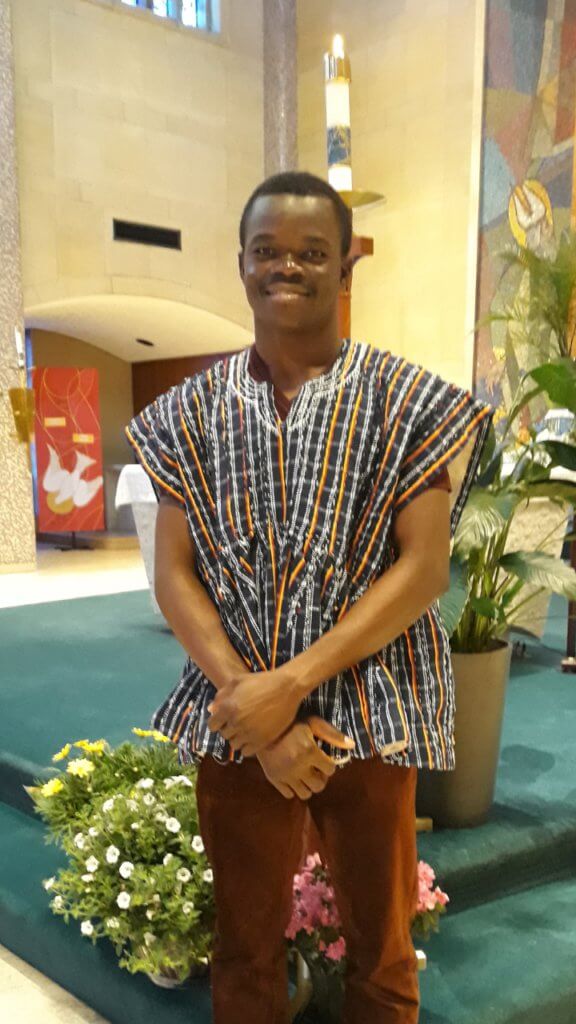
If Kongyir wins the Hult Prize, he would receive US$1 million prize to help fund his project addressing global problems. Source: Benedict Kuunaa-eguo Kongyir
How have your lecturers supported you so far?
I have a very cordial relationship with all my professors. But if we’re talking about fun memories, I would say it would have to be with Dr. Taylor without a doubt. I remember after my first class in Real Analysis 2 I didn’t understand.
He then made me prove the theorem that I didn’t get on the board with him. He started asking my questions that I needed to know and I felt like a fish out of water. After that, I took a break in asking him to explain things to me because I appreciate him helping me learn the hard way.
Do you get to apply the theories you gained in lecture halls and classrooms to the real world?
I specialised in statistics so most of the courses I took were about statistics and data analysis. In advanced data analysis, I did a project assessing the effects of substance abuse on high school students’ academic performance in the US using logistic regression.
I also worked with a colleague to predict a financial institution loan delinquency using logistics regression with SAS studio. I’m hoping to do an internship where I can get to apply what I’ve learnt as well as be taught on how to develop practical skills. But due to COVID-19, I haven’t been able to.
What are your academic goals and what skills have you gained?
My goal is to become a predictive actuary and an academic professor. I want to qualify as an actuary with a strong foundation in mathematics and statistics so I can easily achieve my goal.
With my passion in teaching, I wish to get back to the classroom to lecture courses in actuarial science and statistics sometime in the future. I also taught French and mathematics in the basic school after my high school for a year before I went to uni.








